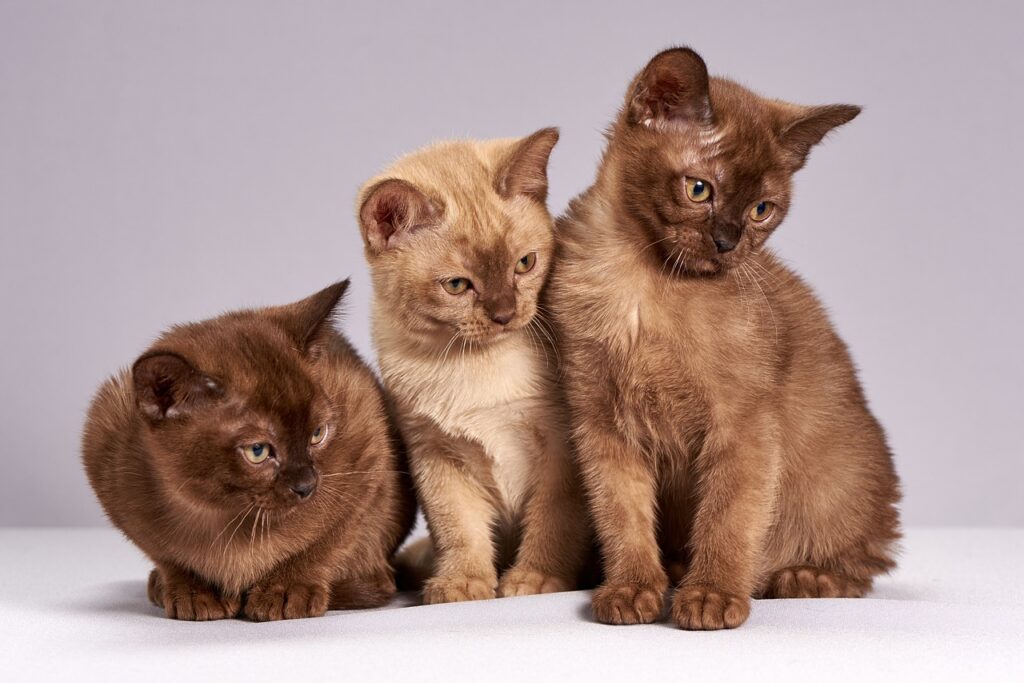Can Cats Eat Mackerel? – Yes, They Can
Cats are natural hunters and meat-eaters, and mackerel can be a tasty and nutritious addition to their diet. Rich in essential nutrients, this type of fish can offer several health benefits to cats when served properly. Still, it’s important to ensure it is given in moderation and prepared safely to avoid any potential risks, such as bones that could cause choking or harm.
Can Kittens Eat Mackerel?
Yes, kittens can also eat mackerel, but always with extra caution. Since their digestive systems are still developing, it’s pivotal to introduce any new food, including mackerel, gradually and in small amounts. Monitoring the response of your kitten to mackerel is necessary to account for any signs of digestive upset.
Things to consider when feeding mackerel to kittens?
When introducing mackerel to a kitten’s diet, consider the size and frequency of the portion. Start with a tiny piece to see how they handle it and ensure the fish is thoroughly cooked and free of bones. Since kittens require a balanced diet to grow, mackerel should only be an occasional treat and not a staple of their diet.
Nutritional Benefits of Mackerel for Cats – Why Mackerel is Good for Cats
Omega-3 Fatty Acids
Mackerel is high in Omega-3 fatty acids, which can support a cat’s immune system, reduce inflammation, and promote a shiny, healthy coat. These essential fats are also critical for healthy brain development in kittens.
Proteins
As obligate carnivores, cats require protein as the cornerstone of their diet. Mackerel provides high-quality protein that’s important for muscle growth and repair, as well as overall body function.
Vitamins
This fish is a good source of B vitamins, which help in energy production and prevent medical issues like heart disease by controlling homocysteine levels in the blood.
Minerals
Mackerel contains essential minerals such as phosphorus for healthy bones and selenium, an antioxidant that helps in maintaining a robust immune system.
Taurine
An amino acid crucial for a cat’s health, taurine is abundant in mackerel. It aids in vision, digestion, and heart muscle function.
Potential Allergies: Can Cats Be Allergic to Mackerel?
While it’s not common, cats can develop allergies to any type of food, including mackerel. If your cat has not previously eaten mackerel, start with a small amount and watch for any adverse reactions.
Symptoms of Mackerel Allergies in Cats
- Gastrointestinal issues: Look out for symptoms like vomiting or diarrhea after your cat eats mackerel.
- Skin irritations: Observe your cat for any excessive scratching, hair loss, or skin redness.
- Respiratory problems: Keep an eye out for coughing, wheezing, or any other difficulties in breathing.
What to Do If Your Cat Shows Symptoms?
- Immediate cessation: Stop feeding your cat mackerel and monitor them closely.
- Veterinary consultation: Contact and consult your veterinarian if symptoms persist or worsen.
- Dietary adjustment: With your vet’s guidance, you may need to adjust your cat’s diet to eliminate the allergen.
Recommended Amount: How Much Mackerel Can a Cat Consume?
Mackerel should be served to cats sparingly, as an occasional treat, not as a regular meal. Small, boneless, cooked pieces once or twice a week are generally adequate to provide the benefits without overloading their diet with too much fish.
Things to Consider When Feeding Mackerel to Cats
Besides bone removal, it’s important to cook mackerel without harmful oils, seasonings, or salt. Also, consider the calorie content of mackerel in the context of your cat’s total caloric intake to avoid weight gain.
How to Feed Mackerel to Cats: A Quick Guide
Mackerel can be a mouthwatering treat that also offers health benefits to cats when prepared thoughtfully and served correctly.
Simple Steamed Mackerel
Steam a fresh mackerel fillet until thoroughly cooked. Let it cool and remove all the bones before offering a small piece to your cat.
Mackerel Mash
Cook a mackerel fillet through, mash it with a fork, ensuring no bones remain, and mix with your cat’s usual food.
Cat-Safe Mackerel Patties
Combine cooked, boneless mackerel with a bit of cat-safe cooked pumpkin to form small patties. Cook again without any seasoning, cool, and serve occasionally.
Conclusion
Mackerel can be a healthy and delightful treat for cats, providing essential nutrients. Always ensure it’s cooked without unsafe ingredients, served in moderation, and watch for any adverse reactions. With attention to detail and care, mackerel can be integrated into your cat’s diet for variety and health benefits.



